Diamantina
23 Jan
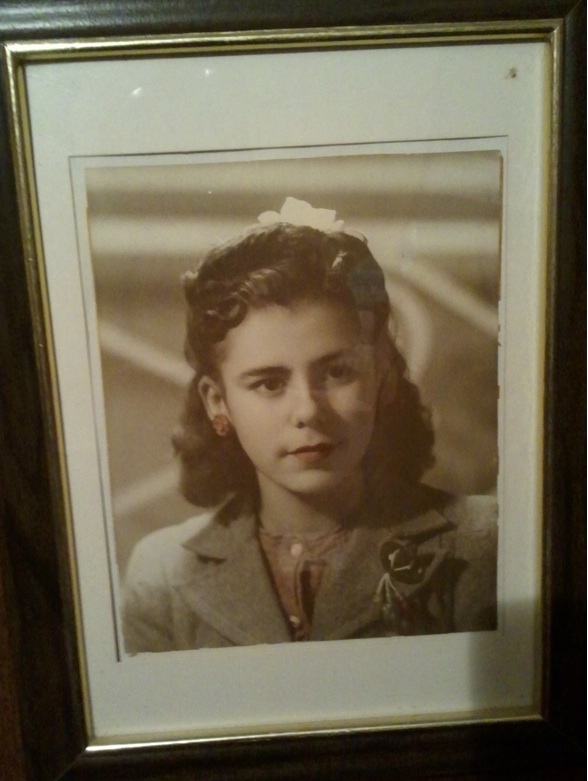
A few days before Christmas, I took over a carload of gifts to my parents’ house. We weren’t going to be traveling to South Texas for the holiday — we haven’t gone the last few years, since Carolina was born as we’ve resisted long road trips with both kids — and my parents were going to deliver our gifts to members of the immediate family.
It was a weeknight, it was late and I had unloaded the gifts and was eager to get back home and get to bed.
My dad took me aside for a minute and asked me to think about something. He said he knew we weren’t planning to travel down this year, but that we should consider a trip sometime soon. He told me my grandmother, of course, wasn’t getting any younger and that she wasn’t always going to be around for us to see. Last year, she had traveled through town with my aunt, uncle and cousin and we got to see her right around the holidays. But, he said, she’d been a lot less mobile lately and was starting to have trouble remembering things and sometimes even recognizing people.
I knew it was true that we should make more of an effort to see her soon, but I also knew we weren’t changing our travel plans. I told him I’d think about it and I did.
I thought about it a lot more over the next two weeks when everything began to change.
Saturday was the trip down after two days of should-I/shouldn’t-I travel decision-making. Sunday was the trip back with my brother, but by then everything had deteriorated. In 24 hours, we went from watching warily, but hopefully, as my grandmother lay face-down on a hospital bed battling double-pneumonia and other ailments to holding out hope only that she would last a few more hours while her brother from Mexico traveled by bus to see her and say goodbye.
We said goodbye, too, knowing pretty well what was coming and how soon it might come. My brother cried. I cried. My whole family cried. I held her hand, which had gotten colder over that 24 hours. Her fingers and her face had puffed up from all the blood pressure medications they’d given her in an attempt to raise it. But it was still my grandmother. Her chest rose and fell as if she was only sleeping, as if it was her own breath and not air from tubes attached to a machine. We didn’t know if she could hear us, but we assumed that she could. I leaned in close, touched her back and said, “Goodbye grandma.”
She died that evening. Tuesday, we drove down, kids in tow, and we came back Wednesday. It was the first funeral I had been to in a really long time.
I loved both of my grandmothers. My grandfathers both died before I was born (my grandmother on my mom’s side remarried when I was little and that’s been my grandpa for as long as I can remember). She took care of me a lot when both my parents worked and we lived in South Texas, but my other grandmother, Diamantina, typically watched me on weekends. She didn’t live that much farther out, but we didn’t see her as often.
I usually had the run of the small house when I was there. I was the only grandchild and I remember running up and down the narrow main hallway, jumping on beds, probably driving everybody nuts.
My grandmother’s house in Mercedes, Texas, is small and cramped and there’s a lot of stuff in it. It was never Hoarders, but in such a tiny space, even a small amount of clothes, photos, mementos, a TV and DVDs would begin to fill up the area pretty quickly. Sometimes my grandma had dogs, at one point she had chickens in the backyard, there always seemed to be cats outside wandering around. She loved animals.
When I was there, I wouldn’t want to leave when my parents picked me up. I just wanted to stay there and live an unstructured life in this tiny, stuffed house which was filled with old mementos of people I didn’t know (my dead grandfather, especially). There were always snapshots on the paneled living room wall. Pictures of my aunt and uncle, my dad, assorted Mormons in their crisp white short-sleeved shirts, nearly all of them taken right out there on the front yard, the metal rails or the pink of the brick visible.
Also in the living room: stuff I imagine my dad sent when he joined the Air Force including a pillow I would always see. It always made me imagine where he bought it and how he sent it home. Was it from basic training in San Antonio? Probably.
Diamantina rarely spoke English, unless it was in little phrases, a word here or there. When I was little, living in South Texas, I spoke Spanish about as well as most other little kids living there, but once I hit school, I know that started to go away. I’d get embarrassed and not want to speak it, even though that was really the only way to communicate with her. So she spoke a lot, and I spoke very little and I think my aunt and uncle, who always seemed to be around, helped fill in the gaps.
Like most grandmas, she was always trying to get me to eat, always telling me she loved me. She called me “Omarsito” and blessed me all the time. Even when I was very little, she seemed impossibly old, not terribly mobile, with glasses and crispy orange hair and some illness that was always bothering her. (It was diabetes for years and years; I never imagined when I was growing up that in the distant year of 2012 that she would still be relatively healthy as an 84-year-old woman).
I think a lot now about what it is to be loved from the moment you’re born by someone and for that love to never ever stop until that person stops living.
How many people have loved me that way? A handful?
She did.
We moved around a lot with my dad in the Air Force. At one time, we lived overseas for three years. We probably saw her twice in that whole time (we took a long trip about midway through that assignment, I believe). I didn’t think about it at the time probably at all, but I wonder now what that must have been like for her, to have her son and her grandkids on the other side of the world. There was no Skype, no online chat. We were just away, for a really long time. She was in that small house and when we returned, there she was, still unconditionally loving us.
But that’s just one perspective.
When I got to the hospital that Saturday, my grandmother was already face down on the sports hospital bed, one that could be easily adjusted into a bunch of different positions. She was already unconscious, having been sedated to conserve her energy. She was on a respirator and my family was already skilled at reading the heart rate, the blood pressure, the respirator percentage and asking lots of questions. There were lots of tubes going all over the place, several drips, just a lot of machinery breathing for her, listening and recording.
I brought a book because I expected to be in the waiting room for hours, but that didn’t happen.
Instead, I spent more time than I expected in the hospital room itself, sometimes with my dad, or with my aunt and uncle or with my brother.
One of those times, a male nurse came in and began changing out the drips. He read the situation instantly, asking if she was our grandmother. We said yes.
“We all love our grandmas,” he said and told us in an economical few sentences about his grandmother, whom he’d grown up with. He said she was in her mid-90s when she finally got sick enough that she could no longer speak. But when she saw her grandson, he said, a tear fell down her cheek for him.
He said a little prayer for us and that was when I lost it. And when my brother lost it. We sat in our chairs on opposite sides of the room, our grandmother lying between us.
When we left the next day, my brother and I, we knew the hours were short and that there was nothing more the doctors or the family could do. My family was waiting for my great uncle, my grandmother’s brother Juan, to arrive via bus from Mexico. At that point, everyone just wanted him to make it to the hospital and for my grandmother to hang on for at least that long.
My aunt and uncle, who both work in medical professions, knew what was happening and nobody wanted my grandmother to suffer. She was shutting down, her medicines to keep her blood pressure going were maxed out and ineffective and it was going to get worse.
We all cried together in that room harder than we had since I arrived.
It felt strange leaving before it was over, but I had to get back to my family knowing that we were going to turn right back around and drive back to attend a funeral soon with our girls. My brother needed to get back for some work, too.
We drove back and I played the funniest podcasts I could find to take our minds off what was happening. We laughed a lot on the road trip back, my brother and I. I had driven down by myself and as much as I like quiet time, it felt so much better to have someone in the car with me.
I remembered when I was very small and a great grandmother of mine had died, that there had seemed to be rules about not listening to music or telling jokes or carrying on for a period of time after it happened. I think those rules have always been in my head for some reason and I asked my brother later if he had ever heard that. He hadn’t. Maybe someone had mentioned that in my 4-year-old presence and I misunderstood. But it felt good to laugh on that trip and forget about the horrible thing that was happening. I’m pretty sure my grandmother, who loved music and jokes and pop culture, would not have wanted us to be miserable because of her.
After I got home, she was still holding on.
But not that much longer. She was gone in a few hours by that evening.
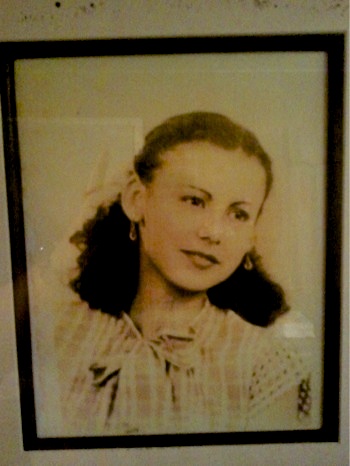 As the viewing and the funeral the next morning, I learned that my grandmother had a much larger community of people who cared about her than I had imagined. She had participated in choir, traveled, worked several jobs that I’d never heard about, had helped found a local church and had been a mom/grandma figure to lots of people in her town.
As the viewing and the funeral the next morning, I learned that my grandmother had a much larger community of people who cared about her than I had imagined. She had participated in choir, traveled, worked several jobs that I’d never heard about, had helped found a local church and had been a mom/grandma figure to lots of people in her town.
I’m filled with the usual regrets. I should have asked more questions, should have listened more, should have been more curious more often.
What hurt most was that we didn’t see her one last time over the holidays. It would have been very difficult to make that trip given what we had going on, but it wouldn’t have been impossible. We thought there was more time.
But my uncle mentioned that she got to see our girls over Skype in December and that made me feel a lot better. She’d seen the girls in person last year, too.
Every time I think of her now, I still imagine her in that house in that town that I saw less and less often over the years and I wonder how it was I thought that she would be there forever, always waiting, always ready to bless me, to call me “Omarsito,” to be my grandmother, someone I loved.
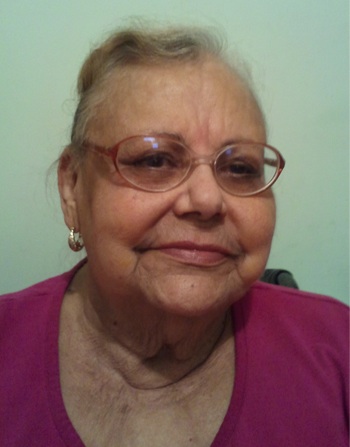


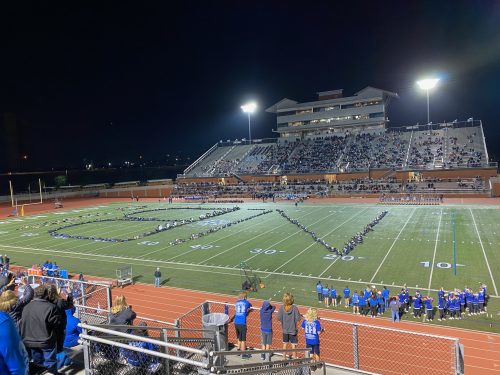
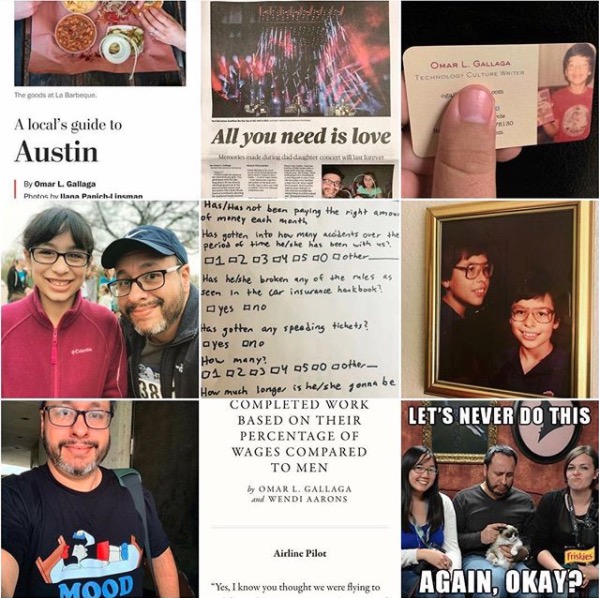

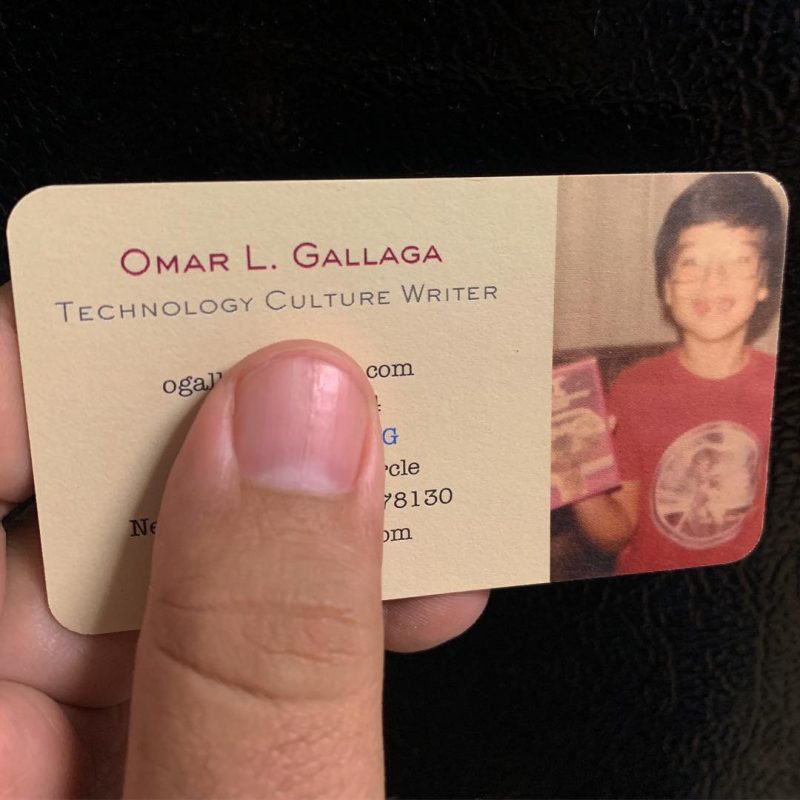
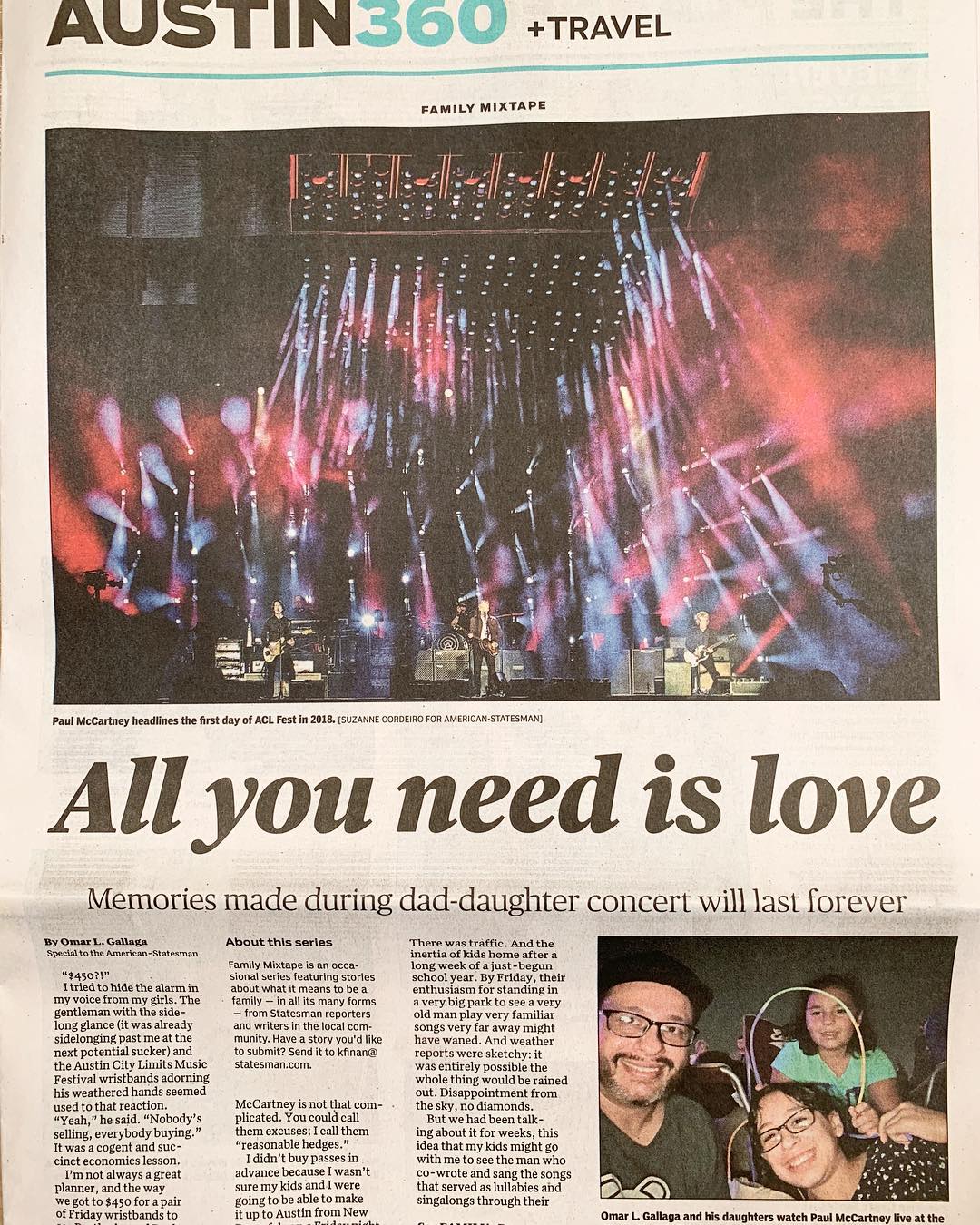
I’m so sorry, Omar. Loved ones dying… doesn’t matter how old they are or how long we saw it coming. It still sucks. I’m glad you have such good memories. Glad you know she loved you, and that you no doubt know she knew you loved her.
Circle of life, I guess. No way around it, but that doesn’t make it easy.
Thank you for sharing this.
I lost my grandma just last summer and your post brought tears to my eyes and a lump in my throat.
My deepest sympathies to you and yours.
Kind regards,
Julia
What a beautiful name: Diamantina. I’d never heard it; I smiled really widely at her nickname for you.
Lovely, honest piece. You paint such a vivid picture. There’s nothing like a grandmother, and both of mine are gone. But now I AM one and I wonder if I’ll ever be half the grandmother mine was.
I’m sorry for your loss. When my mom was dying a wise person told me: “You won’t make it out of this without regrets.” She was right, but somehow knowing that it’s a universal malady helps.
I hope you’ll keep writing about her… I enjoyed the snapshot you provided here.
lj
I lost my grandmother in April. It’s a terrible sad thing. I’m so very sorry for your loss. But, I love what you wrote. It’s beautiful. Sending you a virtual hug…
Omar — Thank you for the unintended advice. I will do my best to spend more time with my Mother. I’ve known you for over 26-years, now I understand the reason for your good upbringing. Believe, God has Grandma Diamantina in His hands.
Ruben
Omar,
Before we did our blogtalkradio interview, I wanted to learn something about you. This piece was EXACTLY what I was looking for. You write with such grace, such vulnerablity, such humanity. The line, “I’m filled with the usual regrets…” says it all.
I was a fan before from your work in the AA Statesman. I’m an even bigger fan now!